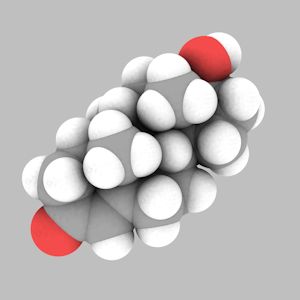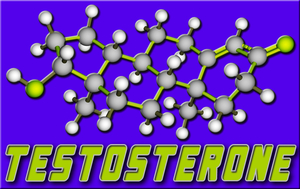Video Link: https://vimeo.com/290547086
Video Download: Click Here To Download Video
Video Stream: Click Here To Stream Video
Video Link: https://vimeo.com/290548763
Video Download: Click Here To Download Video
Video Stream: Click Here To Stream Video
Andropause is a hormonal condition that impacts men as they grow older, caused by natural changes in hormone balance that are inevitably associated with aging.
This change in hormone production can lead to psychological, sexual, and physical changes that inhibit health, suppress vitality, and increase the risk of a variety of conditions that can impair health and wellness.
In the past, it was assumed that these physiological changes were strictly due to aging, but the more that doctors research male aging, the more that they discover is actually associated with hormone imbalance and the more it seems possible to alleviate those symptoms effectively with Testosterone Therapy.

Andropause goes by a number of different names. It belongs to a subset of conditions known as Male Hypogonadism, but it is also referred to as Androgen Decline in the Aging Male and Late-Onset Hypogonadism.
Not all men experience significant changes as a direct result of Andropause and produce levels of Testosterone that are in the normal range for their entire life.
Other men will experience these symptoms relatively early, even in the thirties in many cases!
You'll sometimes hear Andropause called the Male Menopause, but this isn't necessarily accurate. Menopause is a sudden and rapid change that occurs after a woman's last menstrual cycle, whereas for men, the change takes place over years and years and the onset of symptoms is very gradual and does not impact every man.
How Many People Have Andropause?
Andropause is relatively common and becomes more common as men grow older.
It is estimated that between 2%-5% of men experience the condition in their 40s, and by the seventies, between 34% and 70% suffer from the condition. Over 90% of men in their nineties suffer from Andropause.
Symptoms of Andropause
Andropause occurs slowly over time, and the symptoms appear slowly as well. Some symptoms occur more quickly than others. The following are some symptoms that are associated with Andropause:
- Changes in Body Composition, Weight Gain and Loss of Muscle Mass
- Lack of Energy, Fatigue
- Reduced Libido and Erectile Dysfunction
- Irritability, Depression, Loss of Confidence
- Loss of Strength
- Thinning Beard and Body Hair
- Loss of Bone Mineral Density, Increase in Risk of Osteoporosis
- Changes in Cholesterol and Cardiovascular Health
Diagnosis of Andropause
There are two things that count when it comes to Andropause: You have to show symptoms of the condition, such as those listed above, and your Testosterone Levels have to be demonstrably low, as shown by blood testing.
There are also other issues that can be shown to contribute to your deficiency. Patients that have normal Total Testosterone Levels but Low Free Testosterone Levels may still require Testosterone Replacement even though their Total Testosterone Levels are in the low-normal range.

Every patient responds to Testosterone at their own, unique level of sensitivity.
Some men function at a perfectly normal level with slightly suppressed Testosterone Levels, whereas others may show signs of Deficiency even though their readings say that they should be within the normal range.
Testosterone Blood Samples are given in the morning, because this is when Testosterone Levels are at their highest, and this is the most effective time to get a reliable reading of your Testosterone Concentrations.
The “Normal” Range for Testosterone is between 300 ng/dl to 1,200 ng /dl. Patients with levels below 300 ng/dl and especially those with Testosterone levels under 200 ng/dl are most likely to need treatment, but patients can show signs of deficiency at levels as high as 600 ng/dl in some cases.
If it is higher than that, Testosterone is almost certainly the cause of your problems. If levels are below 600 ng/dl and you are experiencing symptoms, you may benefit greatly simply by changing your lifestyle habits, but the lower that your Testosterone Levels are, the less effective natural options will be and the more likely that you will need to go to Bio-Identical Testosterone Therapy for Testosterone Restoration.
Testosterone Replacement for Andropause
Andropause is a common and unfortunate condition, but thankfully, there is a simple and effective treatment to relieve the symptoms associated with Andropause and help patients live a more robust and normal life.
The concept behind Testosterone Restoration is simple—to restore Testosterone Levels to those associated with patients in their twenties and thirties. By returning Testosterone Levels to Low- or Mid- Normal, it is possible to alleviate Andropause symptoms, potentially vastly improving the psychological, sexual, and physical profile of the patient.

An important part of Testosterone Therapy is ensuring that the total hormone balance is maintained.
For this reason, Testosterone is often combined with hormone treatments designed to limit the conversion of Testosterone into Estrogen and DHT.
There are a variety of effective means to treat Testosterone Deficiency, including:
- Low-T Gels
- Low-T Patches
- Low-T Injections
- Testosterone Dermal Implants
- Clomiphene Citrate
Testosterone Pills are often sold, but they can cause liver damage as a result of the way that the digestive system absorbs and breaks down Testosterone. Testosterone is safe for the liver when taken via any of the means listed above.
How Effective is Testosterone Therapy for Andropause?
Because of the direct way that Testosterone Treatments restore hormone balance, they are highly effective.
Andropause is a chronic condition and there are limitations regarding how much you can naturally increase your Testosterone Levels without therapy. Testosterone Therapy can be a long-term solution to Testosterone Deficiency caused by aging.
It's important to note that there is still more research to be done, but all signs show that Testosterone Therapy is very safe for patients, especially if they have their Estrogen Levels and Red Blood Cell Count evaluated over the course of therapy and treated if necessary.
Menopause Therapy has been around twenty years longer than Andropause Treatment, and researchers began to analyze the benefits of Menopause Therapy earlier, so the science lags behind just a bit.
However, these are some of the potential benefits of Low-T Treatment with Testosterone for Andropause:
Improved Bone Mineral Density – Testosterone improves the rate at which the bones rebuild and recycle bone tissue, reducing the risk of osteoporosis later in life.
Enhanced Psychological Profile – There is evidence that Testosterone increases men's overall general sense of well-being, as well as their confidence and self-perception. Many men even experience increased cognitive function.
Increased Muscle Mass and Reduced Fat – Testosterone encourages healthy body fat metabolism and encourages the muscles to maintain and build mass.
Enhanced Libido – Testosterone is the most important hormone when it comes to sex drive. Testosterone encourages sexual pleasure and increases a man's ability to generate sexual excitement.
Improved Sexual Function – Testosterone is also a necessary component of erectile function. Both Testosterone and ED medications like Viagra improve sexual function, but some patients respond to one and not the other, and many men get the best results when combining both forms of treatment.
Stronger Cardiovascular System – Evidence has long linked Testosterone Deficiency with poor cardiac outcomes, but newer research suggests that when Estrogen and Red Blood Cell Counts are controlled, Testosterone Therapy actually has a positive effect upon heart health and function.
Improved Cholesterol Levels – Testosterone keeps Cholesterol Levels in the bloodstream balanced, which potentially improves cardiovascular health.
Who Should Not Take Testosterone for Andropause?
As with any Hormone Therapy Treatment or other medication, there are certain risks associated with Bio-Identical Testosterone that must be taken into account. There are also certain patients that should not take Testosterone Therapy for any reason.
For example, patients that have experienced breast cancer or prostate cancer in the past should avoid Testosterone Therapy because of the stimulative effect that Testosterone Treatments can potentially have on these types of tissue.
Side-Effects of Testosterone Therapy for Andropause
Fertility Issues – Testosterone Therapy does suppress Fertility, and, taken alone, this is an unavoidable aspect of therapy. By combining Testosterone with HCG, however, one can maintain fertility during treatment. Also, Estrogen blockers can simultaneously improve Sperm and Testosterone Production.
Fluid Retention – In the initial ninety days or so of treatment, some men experience fluid retention resulting from their Testosterone Treatment. There are studies that suggest that this could possibly contribute to congestive heart failure, exacerbation of hypertension, or swelling of the legs or ankles. Research suggests, however, that the conversion of Testosterone to Estrogen and the increased production of Red Blood Cells contribute to this, which can be prevented through the use of Anti-Estrogen drugs and blood donation, respectively.
Polycythemia – Testosterone Therapy increases Eryhtrocyte activity, leading to the enhanced production of Red Blood Cells. Donating blood resolves this issue.
Gynecomastia – Some Testosterone is converted into Estrogen, which can contribute to the development of breast tissue in some cases. Estrogen blockers can prevent this symptom.
Prostate Health – The effect of long-term use of Testosterone has not been adequately studied, but short-term studies have shown no major risk unless the patient has prostate cancer, in which they should not use Testosterone.
Contact Us Today For A Free Consultation

- Andropause Symptoms Treatment - Fixing Male Menopause - Video [Last Updated On: November 25th, 2024] [Originally Added On: July 12th, 2012]
- Andropause: Male Menopause - Video [Last Updated On: November 25th, 2024] [Originally Added On: July 12th, 2012]
- About Andropause - Video [Last Updated On: November 25th, 2024] [Originally Added On: July 12th, 2012]
- MALE MENOPAUSE, MANOPAUSE, OR ANDROPAUSE? - Video [Last Updated On: November 25th, 2024] [Originally Added On: July 12th, 2012]
- Andropause Menopause Symptoms and Solutions Testosterone - Video [Last Updated On: November 25th, 2024] [Originally Added On: July 12th, 2012]
- Treatments for Male Menopause/Andropause/Manopause/Testosterone Deficiency - Video [Last Updated On: December 20th, 2024] [Originally Added On: July 12th, 2012]
- What is testosterone deficiency syndrome/male menopause/.andropause - Video [Last Updated On: November 25th, 2024] [Originally Added On: July 12th, 2012]
- Testosterone Deficiency Syndrome/Andropause - Video [Last Updated On: December 20th, 2024] [Originally Added On: July 12th, 2012]
- John Crisler DO - Andropause [Last Updated On: December 20th, 2024] [Originally Added On: July 12th, 2012]
- Menopause/Andropause [Last Updated On: December 20th, 2024] [Originally Added On: July 12th, 2012]
- Male Andropause: Part 2 - Video [Last Updated On: December 20th, 2024] [Originally Added On: July 12th, 2012]
- Dr. Steven Jepson discusses Andropause - Video [Last Updated On: December 20th, 2024] [Originally Added On: July 12th, 2012]
- Maturitas publishes clinical guide on low-dose vaginal estrogens for vaginal atrophy [Last Updated On: January 10th, 2018] [Originally Added On: September 13th, 2012]
- Testosterone Deficiency in Men - Andropause Symptoms and Treatment - Video [Last Updated On: January 4th, 2025] [Originally Added On: November 2nd, 2012]
- Andropause - The Male Menopause - Video [Last Updated On: January 3rd, 2025] [Originally Added On: November 2nd, 2012]
- SA STGEC ~ Ad Hoc Talk: Andropause (2006) - Video [Last Updated On: January 4th, 2025] [Originally Added On: November 2nd, 2012]
- The Cosmetic Medic Stamford CT - Video [Last Updated On: January 5th, 2025] [Originally Added On: November 2nd, 2012]
- Testosterone Roundtable -- Overview of Low Testosterone (Part 1) - Video [Last Updated On: January 5th, 2025] [Originally Added On: November 2nd, 2012]
- Naturally Increase Testosterone Levels - Video [Last Updated On: February 8th, 2025] [Originally Added On: November 26th, 2012]
- Patients Medical Welcomes Dr. Marcia A. Harris, Holistic Gynecologist and Anti-Aging Physician [Last Updated On: June 7th, 2025] [Originally Added On: December 2nd, 2012]
- ALCAT Pioneer, Roger Deutsch, to Address "Food Induced Inflammation and Aging" at Vienna's Prestigious December ... [Last Updated On: June 8th, 2025] [Originally Added On: December 5th, 2012]
- Andropause: Changes in Aging Men - Video [Last Updated On: February 19th, 2025] [Originally Added On: December 10th, 2012]
- Rhein Test Kit - Avante Medical Center - Video [Last Updated On: February 19th, 2025] [Originally Added On: December 10th, 2012]
- AM Northwest Appearance - Andropause - Video [Last Updated On: February 19th, 2025] [Originally Added On: December 10th, 2012]
- Lessons in Menopause for Men - Video [Last Updated On: December 15th, 2012] [Originally Added On: December 15th, 2012]
- AAG Health Publishes Testosterone and HGH Discussion-Blog [Last Updated On: June 11th, 2025] [Originally Added On: December 26th, 2012]
- Understanding Andropause: Erectile Dysfunction - Part Two - Video [Last Updated On: February 26th, 2013] [Originally Added On: February 26th, 2013]
- Airing March 2 and 3: BBC World News 30-Minute Segment on Andropause/Aging with Dr. Jeff Life, Healthy Aging Expert ... [Last Updated On: February 26th, 2025] [Originally Added On: February 28th, 2013]
- Andropause - Great Android App For Men - Vigor - Stamina - Video [Last Updated On: February 28th, 2013] [Originally Added On: February 28th, 2013]
- Eastday-Survey finds 1m locals suffer from andropause [Last Updated On: August 23rd, 2025] [Originally Added On: May 22nd, 2013]
- What Is Andropause?Diagnosis,Symptoms,Treatment [Last Updated On: March 11th, 2025] [Originally Added On: July 2nd, 2013]
- Andropause - Video [Last Updated On: July 2nd, 2013] [Originally Added On: July 2nd, 2013]
- Andropause Glossary - Video [Last Updated On: July 2nd, 2013] [Originally Added On: July 2nd, 2013]
- Andropause Symptoms - Video [Last Updated On: July 2nd, 2013] [Originally Added On: July 2nd, 2013]
- Understanding Andropause: Erectile Dysfunction - Part One - Video [Last Updated On: July 2nd, 2013] [Originally Added On: July 2nd, 2013]
- Understanding Andropause - Video [Last Updated On: July 2nd, 2013] [Originally Added On: July 2nd, 2013]
- Andropause video - Video [Last Updated On: July 8th, 2013] [Originally Added On: July 8th, 2013]
- ANDROPAUSE SOLUTION "OSS-TEST" TOP BEST NATURAL TESTOSTERONE BOOSTER - Video [Last Updated On: August 3rd, 2013] [Originally Added On: August 3rd, 2013]
- Natural relief for andropause [Last Updated On: December 2nd, 2017] [Originally Added On: October 10th, 2013]
- Andropause - Causes, Symptoms, Treatment, Diagnosis - Seniors ... [Last Updated On: January 7th, 2018] [Originally Added On: November 3rd, 2013]
- Andropause - Causes, Symptoms, Treatment, Diagnosis - Men's Health ... [Last Updated On: December 31st, 2017] [Originally Added On: November 3rd, 2013]
- Andropause Specialist [Last Updated On: January 21st, 2018] [Originally Added On: November 10th, 2013]
- Understanding Andropause [Last Updated On: October 24th, 2015] [Originally Added On: November 10th, 2013]
- Andropause - Causes, Symptoms, Treatment, Diagnosis - Men's ... [Last Updated On: January 20th, 2018] [Originally Added On: November 18th, 2013]
- Andropause | Male Menopause | Male Menopause Symptoms | Male ... [Last Updated On: November 25th, 2018] [Originally Added On: November 18th, 2013]
- Symptoms of andropause - Men's health [Last Updated On: November 25th, 2018] [Originally Added On: November 21st, 2013]
- Andropause In Men [Last Updated On: December 9th, 2017] [Originally Added On: November 23rd, 2013]
- Andropause - Male Menopause - Androgen Replacement Therapy [Last Updated On: January 13th, 2018] [Originally Added On: November 25th, 2013]
- Andropause 2013 - Reviewed and Ranked - Independent Reviews on ... [Last Updated On: March 30th, 2025] [Originally Added On: November 25th, 2013]
- Andropause, Facts, Symptoms, Diagnosis, Testosterone Treatment [Last Updated On: January 18th, 2018] [Originally Added On: November 27th, 2013]
- Symptoms of Andropause (Male Menopause): Low Testosterone, Low ... [Last Updated On: December 13th, 2017] [Originally Added On: November 27th, 2013]
- Discovery Health "Andropause: Dealing With Male Menopause" [Last Updated On: December 5th, 2017] [Originally Added On: November 27th, 2013]
- Global Toronto's News at Noon Andropause aka "manopause" - Video [Last Updated On: November 27th, 2013] [Originally Added On: November 27th, 2013]
- San Diego Dermatologist Discusses Male Menopause | Andropause Expert in San Diego - Video [Last Updated On: December 7th, 2017] [Originally Added On: December 9th, 2013]
- The American Academy of Anti-Aging Medicine (A4M) Concludes Largest Event in Anti-Aging, Regenerative and Aesthetic ... [Last Updated On: April 5th, 2025] [Originally Added On: December 19th, 2013]
- Andropause Symptoms - Male Menopause Symptoms [Last Updated On: December 16th, 2017] [Originally Added On: December 27th, 2013]
- What Is Andropause? | eHow - eHow | How to Videos, Articles ... [Last Updated On: January 20th, 2018] [Originally Added On: December 30th, 2013]
- Drug companies are pushing that new-man feeling Low T, high stakes [Last Updated On: April 10th, 2025] [Originally Added On: January 16th, 2014]
- Andropause - Male Menopause - Androgen Replacement Therapy ... [Last Updated On: December 24th, 2017] [Originally Added On: January 16th, 2014]
- Male Menopause Symptoms, Treatments, Causes, and More [Last Updated On: January 15th, 2018] [Originally Added On: January 16th, 2014]
- Can you reverse the aging process? [Last Updated On: April 11th, 2025] [Originally Added On: January 17th, 2014]
- Yourwellness Magazine Explores Male Menopause [Last Updated On: April 12th, 2025] [Originally Added On: January 19th, 2014]
- Antiaging Medicine and Research, India Will Highlight “Hormones and Aging in Medical Practice” During 5th Indomedicon ... [Last Updated On: April 14th, 2025] [Originally Added On: January 24th, 2014]
- Care needed when controlling cholesterol [Last Updated On: October 23rd, 2020] [Originally Added On: January 27th, 2014]
- Symptoms of Andropause (Male Menopause): Low Testosterone ... [Last Updated On: October 11th, 2020] [Originally Added On: January 30th, 2014]
- Antiaging Medicine and Research, India Will Highlight Hormones and Aging in Medical Practice During 5th Indomedicon ... [Last Updated On: October 24th, 2020] [Originally Added On: January 31st, 2014]
- The truth about low testosterone and 'male menopause' [Last Updated On: October 31st, 2020] [Originally Added On: January 31st, 2014]
- Surge or shrink [Last Updated On: November 1st, 2020] [Originally Added On: February 11th, 2014]
- How Does Andropause Affect Men? - Video [Last Updated On: November 10th, 2020] [Originally Added On: February 14th, 2014]
- Andropause | Male Menopause | Male Menopause Symptoms ... [Last Updated On: November 25th, 2018] [Originally Added On: February 15th, 2014]
- NuMale Medical - Low Testosterone -- Andropause - Video [Last Updated On: October 21st, 2020] [Originally Added On: February 21st, 2014]
- Boost Your Sex Drive: Solutions For Impotence, Erectile Dysfunction And Low Libido [Last Updated On: September 18th, 2025] [Originally Added On: February 27th, 2014]
- HowStuffWorks "Andropause: Dealing With Male Menopause" [Last Updated On: October 16th, 2020] [Originally Added On: March 7th, 2014]
- The Truth About Andropause: Male Menopause - Explained by Hormone Expert, Dr. Ken G. Knott, MD - Video [Last Updated On: November 20th, 2020] [Originally Added On: March 7th, 2014]
- What Is Andropause? It's Symptoms In Men & Treatment ... [Last Updated On: November 11th, 2020] [Originally Added On: March 14th, 2014]
- Andropause Low Testosterone A Drug Free Natural Approach UnitedMulticare com - Video [Last Updated On: October 9th, 2020] [Originally Added On: March 15th, 2014]
- Low Testosterone (Andropause). What is it? - Video [Last Updated On: October 30th, 2020] [Originally Added On: March 15th, 2014]
- Male menopause is a reality [Last Updated On: October 13th, 2020] [Originally Added On: March 24th, 2014]
- Anatomy Menopause Andropause - Video [Last Updated On: March 25th, 2014] [Originally Added On: March 25th, 2014]
- Menopause & Andropause - Video [Last Updated On: November 7th, 2020] [Originally Added On: March 30th, 2014]
Word Count: 1487




















